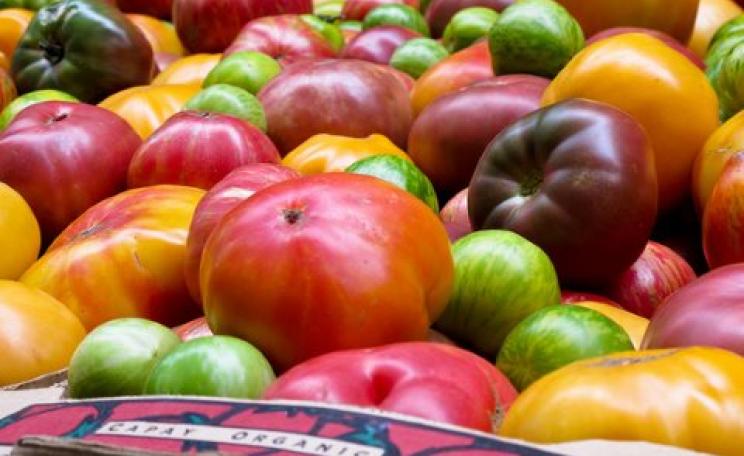Most of us have not moved beyond the level of ‘what if’ thinking, into the nitty gritty details of how we achieve change in the farming system, especially in the wake of calls for an ‘every tool in the toolbox’ approach.
The UK government is now seriously considering the deregulation of genome-edited organisms in agriculture.
An amendment to the Agriculture Bill which would have exempted products of newer genetic engineering technologies from regulation was recently debated in the House of Lords.
The amendment had strong support and was only withdrawn after the government made a strong commitment to redouble its efforts to promote and facilitate the wide use of gene editing in UK farming and food. Defra minister, Lord Gardiner, also announced that there would be a public consultation on gene editing “in the autumn” but gave no further details.
Sustainability
This amendment came out of the blue very late in the passage of the Agriculture Bill through Parliament, and has resurrected a discussion around GMOs in the UK food chain that has long lain dormant.
New technologies like CRISPR promise to deliver sustainability, climate change benefits and other public goods as part of a ‘tools in the toolbox’ approach to food and farming. But can this technological approach really work side-by-side with approaches like organic, agroecology and regenerative agriculture?
Beyond GM/A Bigger Conversation and Natural Products Global co-hosted a recent webinar on the relationship between gene editing and agroecological and organic food and farming. The event was part of a series of panel discussions held as part of the Natural Products Europe and the Nordic Organic Food Fair.
Most of us have not moved beyond the level of ‘what if’ thinking, into the nitty gritty details of how we achieve change in the farming system, especially in the wake of calls for an ‘every tool in the toolbox’ approach.
The panel was a “Who’s Who” of farming, animal welfare, biotechnology, academia and media. It included Philip Lymbery, global CEO of Compassion in World Farming; Wendy Harwood, senior scientist at the John Innes Centre; Guy Singh-Watson, farmer and founder of Riverford; Jack Heinemann, professor of genetics and molecular biology at the University of Canterbury, New Zealand; and Lawrence Woodward director of Beyond GM.
Diversity
Their thoughts, however, did not fall along the usual fault lines. Philip Lymbery, for example, expressed the view that gene editing may actually have some potential for improving animal welfare.
Pat Thomas, who chaired the event, said: “That view came with plenty of caveats. Nevertheless it represents what we have been hearing for the last couple of years – mostly behind closed doors – from other environmentally- and agorecologically-minded people.”
Organic farmer Guy Singh-Watson also offered some support for gene editing, noting: “I’m not adamantly against the technology,” and “if you could give us a blight resistant potato I would find it very hard to argue against.” Nevertheless, he expressed deep concerns around the corporate system, which seems to go hand in hand with GM technology.
Several in the audience felt that even this level of qualified support was a step too far.
The audience was, Thomas notes, “impressively diverse,” representing the biosciences, organic and agroecology, academia and the natural products sector and media from many different countries.
Audience members asked a torrent of questions and comments about the longer term impacts of the technology and whether gene editing was genuinely an improvement on older genetic engineering technologies. Some pointed to non-GE alternatives – such as conventionally bred blight resistant potatoes and less invasive ways of sexing chickens – that could achieve the same ends.
Regulation
According to Thomas, these divisions highlight a couple of important “missing links” in the sustainability conversation: a definition of sustainably that everyone can agree on and a workable plan for how to get there: “Most of us have not moved beyond the level of ‘what if’ thinking, into the nitty gritty details of how we achieve change in the farming system, especially in the wake of calls for an ‘every tool in the toolbox’ approach.”
Geneticists Wendy Harwood and Jack Heinemann both acknowledged both the power and potential of gene editing technology. But while Harwood felt it was on course, one day, to find a place even inorganic systems, Heinemann was more cautious, suggesting that issues around patenting and power hierarchies had still not been addressed.
Heinemann also suggested that ongoing controversies about the technology of breeding plants and animals has, to some extent, taken the focus off other ways that technology can aid sustainability, such as fighting food waste.
All the panellists agreed that some form of regulation is required – though there was no agreement on what this should look like.
Lawrence Woodward suggested that such oversight should take into account societal and citizen concerns but expressed frustration that, thus far, industry and government had failed to come up with a framework for how to put these concerns at the heart of decision-making.
This was a unique and in-depth discussion on a topic that has come back into the public debate about food and farming debate with real force.
This Author
Jim Manson is editor-in-chief of Diversified Communications UK‘s natural and organic publishing portfolio. He’s written widely on environment and development issues for specialist magazines and national media, including the Financial Times, The Guardian, The Times, and World Bank Urban Age
A video of the webinar can be found here. A report on the session with links to the transcript and audience questions can be found here




